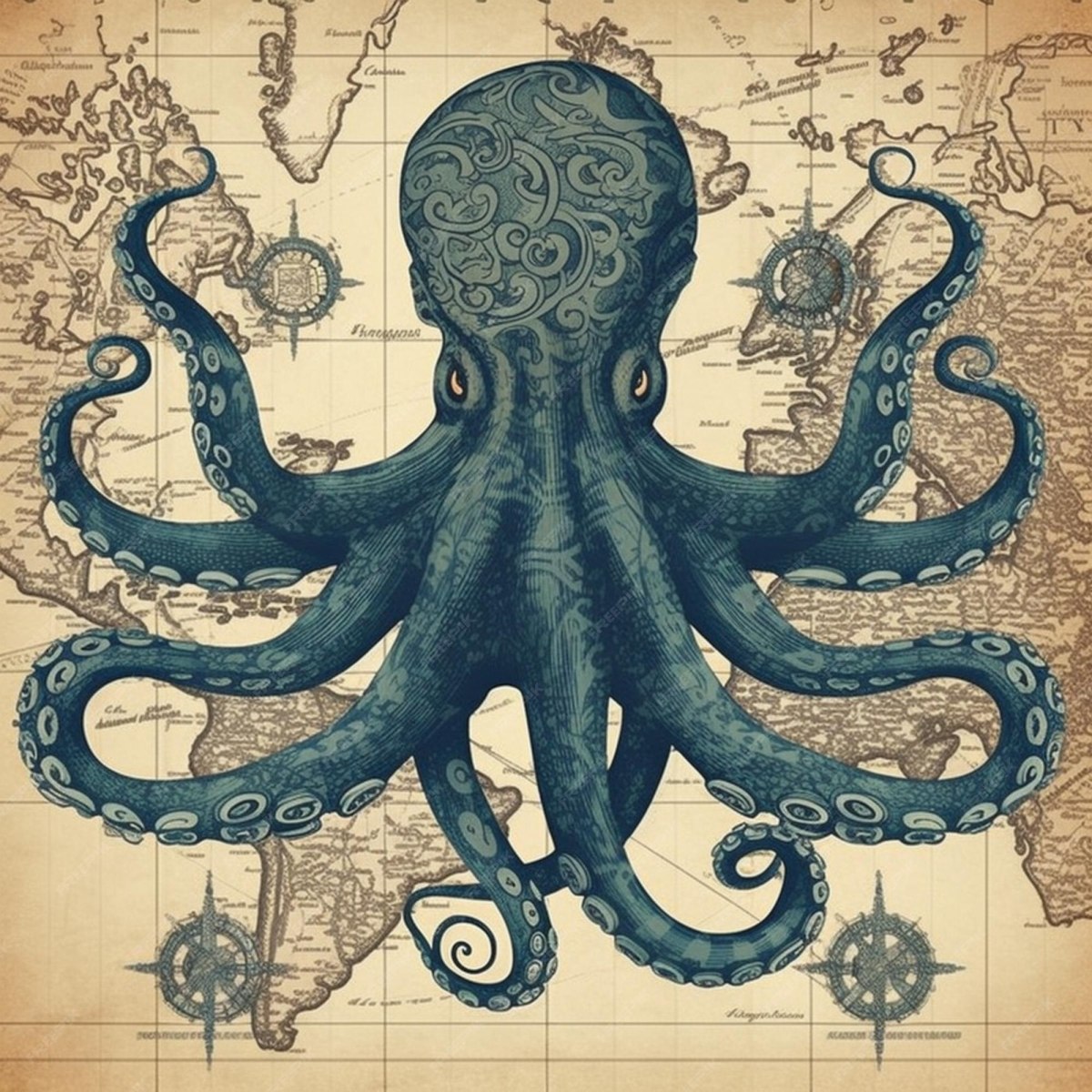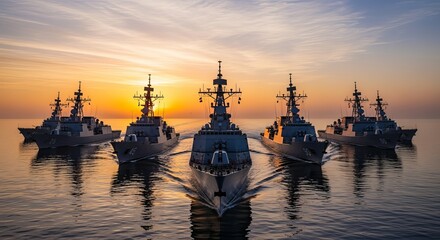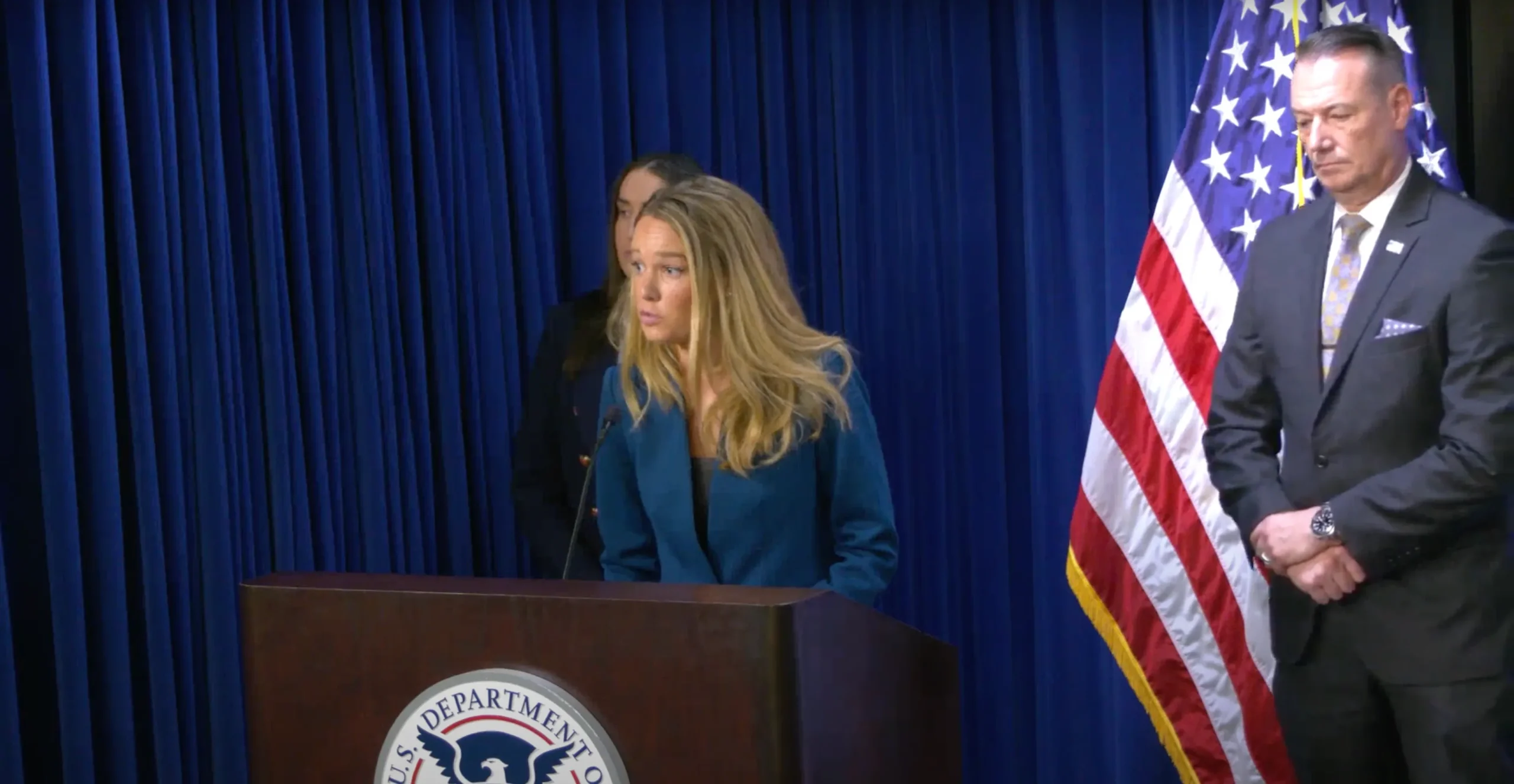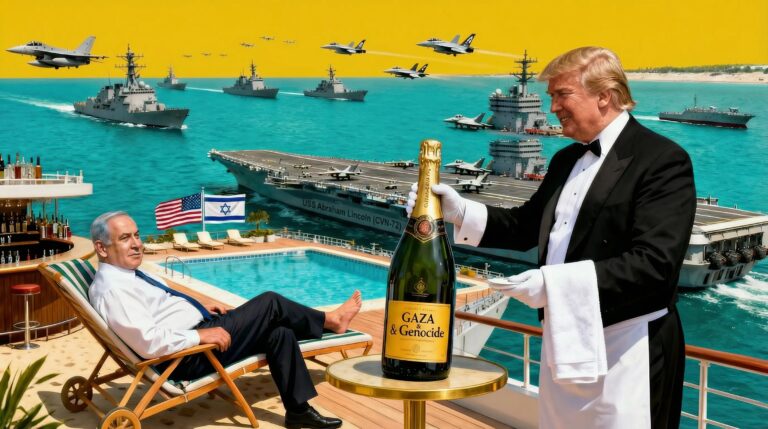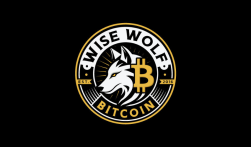By Cynthia Chung
There has been a great deal of criticism against the recent developments with the Hong Kong-based CK Hutchison’s agreement to sell its Panama Canal ports, Cristobal and Balboa, to BlackRock. A sale that has been loudly backed by the Trump Administration.

There has been especially a great deal of criticism by Trump and his administration over the operation of the Panama Canal claiming China has taken over control of this vital trade chokepoint and is causing the US to pay more than others for the use of the canal. There have even been accusations within the Trump Administration, including by US Secretary of State Marco Rubio, that they are certain China plans to block America’s use of the Panama Canal completely. The accuracy of these accusations will be reviewed and discussed in detail in this series.
Panamanian President José Raúl Mulino earlier this year had made a public statement, in response to Trump’s accusations that China was controlling the Panama Canal, and published a strongly worded statement “wholly rejecting” Trump’s words and saying the canal would remain Panamanian.
President Mulino added that no nation was interfering with the canal’s administration and that dialogue was the best way to resolve the issues Trump raised. He also disagreed with Trump’s characterisation of the US returning the canal to Panama.[1]
“The canal wasn’t given by anyone, it was the result of a generational fight that culminated in 1999,” Mulino wrote on X.[2]
However, after Marco Rubio’s visit to Panama after less than one month as US Secretary of State (Panama was first on the list of visits by Rubio, followed by El Salvador, Costa Rica, Guatemala and the Dominican Republic) he proudly stated in his interview with FOX News that Panama was the first country to exit from China’s Belt and Road Initiative (BRI) and that he expects other Latin American countries to follow suit. Trump has repeatedly stated that the US built the Panama Canal and thus has the right to “reclaim it”. These developments and the history of US-Panamanian relations will be discussed in this series.
China has been heavily criticized for the deferral of the BlackRock purchase, who has filed an anti-monopoly investigation launched by China’s State Administration of Market Regulation. This move has ignited accusations that China is overreaching in its legal reach. The accuracy of such accusations will be reviewed in this series.
BlackRock’s role globally as well as domestically will also be reviewed in detail, and especially its direct role in influencing the economy and well-being of Americans. In addition, BlackRock’s role along with Global Infrastructure Partners (GIP) will be reviewed in what they are in fact proposing as a counter to China’s Belt and Road Initiative, along with an overview of BRI’s activities thus far.
On matters of geopolitics, counterintelligence, revisionist history and cultural warfare.
Does China ‘operate’ the Panama Canal as Trump says?
As Trump has recently stated “China is operating the Panama Canal and we didn’t give it to China. We gave it to Panama and we’re taking it back.”
Trump, in his first speech of his second term, denounced the so-called “deal” the US made decades ago to turn over the Panama Canal to Panamanians. “We have been treated very badly from this foolish gift that should never have been made,” Trump said during his inaugural speech. “And Panama’s promise to us has been broken. The purpose of our deal and the spirit of our treaty has been totally violated.”
In the weeks ahead of his inauguration, he threatened to have US reassert control of the Panama Canal, including possible military action the day after Christmas on his Truth Social platform.
As has already been briefly mentioned, the President of Panama Jose Mulino disagreed with this statement by Trump that the Panama Canal was “given” to the Panamanians by the Americans but that this was the culmination of a long fight – a long fight for Panama’s sovereignty that is.
Trump went on to state “Our Navy and Commerce have been treated in a very unfair and injudicious way. The fees being charged by Panama are ridiculous.” Trump also stated that “It was solely for Panama to manage, not China, or anyone else,” Trump said. “We would and will NEVER let it fall into the wrong hands!”[3]
Mulino dismissed these criticisms as well as Trump’s threats to retake the Panama Canal, stating “Every square meter of the Panama Canal and its adjacent areas belongs to Panama and will continue belonging to Panama,” he said on a video posted on X.
Mulino also stated “The canal has no direct or indirect control from China, nor the European Union, nor the United States or any other power,” Mulino continued “As a Panamanian, I reject any manifestation that misrepresents this reality.”[4]
It should be noted here that President Mulino is a right leaning conservative and had very good relations with the US up until these recent accusations.
Let us go over whether there is any validity to Trump’s statements and accusations.
In a recent speech Trump claimed that the Panama Canal had left 38,000 Americans dead. He stated “The United States, I mean think of this, spent more money than ever spent on a project before and lost 38,000 lives in the building of the Panama Canal.”
This is not remotely true. Rather, it is estimated that 25,000 people died that were French and Jamaican, during the first construction period, that were mostly from mosquito-borne viruses. Virtually none of those deaths were American.[5] Author Matthew Parker who wrote the book “Hell’s Gorge: The Battle to Build the Panama Canal” said that during the US period of construction from about 1904 to 1914 about 6,000 died, mostly all who were Bajans, i.e. from Barbados, with about 300 Americans who died in the effort.[6]
These figures are largely in line with other estimates of the death toll in the efforts to build the canal, which was completed in 1914. That during the 1880s more than 22,000 workers from France died (many from malaria and yellow fever). Thus, it appears it is the French who have by a large margin the highest death toll in the construction of the Panama Canal.
It should be noted that the Panama Canal was engineered by the same French engineer as the Suez Canal, it was not engineered by an American. Thus, the Panama Canal was engineered and largely built by the French, though it was the Americans who had colonised the territory (more on this history later in this series).
It is curious as to where Trump got the number 38,000 and how he came to the conclusion that these were American deaths.
Trump has also recently stated that “China is operating the Panama Canal, and we didn’t give it to China, we gave it to Panama, and we’re taking it back.”
Panama has been controlling the Panama Canal since 1999 after a treaty transfer. It is controlled through the Panama Canal Authority, an 11-member board that oversees the waterway’s maintenance and security.
CK Hutchison won a bid in 1997 (thus before Panama even took control over the Panama Canal from the United States!) that allowed Chinese companies to operate in ports at the ends of the canal. But China is not the only one, the United States and Taiwan also have companies who are operating ports along the canal which is open to commerce from all countries. Only two out of the total five ports adjacent to the Panama Canal are owned by the Hong Kong company CK Hutchison.
President Mulino has stated that the passage rates are determined by market conditions. There has been no evidence of unfair treatment in China’s favor as the BBC and Financial Times also acknowledge. It is also acknowledged by the BBC and Financial Times that there is no evidence that Chinese soldiers are positioned at these ports as Trump has claimed.
For those who may still think there is credit to what Trump has been accusing China of concerning the Panama Canal. I suggest the reading the following excerpt from this article “The Chinese Interests in the Panama Canal Including Updates” published by the Newsroom Panama, here is an excerpt to which I would like to particularly highlight from their article:
‘The truth, nothing but the truth. Our family, friends, coworkers and acquaintances rely on our words and that is why we have to be as accurate as possible. To help in this effort of citizen diplomacy, here are the truths we must understand in order to share them with the world.
False statement: “The United States gave the canal to Panama for one dollar ”
Answer: In 1903, Panama authorized the United States to build a canal and gave permission to use land and water. Panama was severely limited in its own development, at a high human and economic cost. The canal was not free; we Panamanians had paid for it in advance and in full.
False statement: “The Panama Canal charges excessively and represents a high cost to the United States economy. ”
Answer: The Panama Canal toll represents 5% of the value of freight between Asia and the United States. 2.7% of world trade passes through the Canal ($33 trillion in 2024), but the Canal only generated revenues of about $6 billion. So it is not a cause of inflation but rather a huge subsidy to the economy of one of the most developed countries in the world.
False statement: “38,000 U.S. citizens died during the construction of the Canal.”
During the construction of the Panama Canal (1904-1914) 350 American citizens died, according to data contained in the Roberto F. Chiari Library of the Panama Canal.
False claim: “The US Navy pays too much to cross the canal and is discriminated against by Panama.”
The US Navy has free [i.e full access] passage through the Panama Canal, so there are no lines or reservations required. [In other words, the passage of the US Navy is prioritised through the Panama Canal.]
Between 2015 and 2024, the US Navy only paid approximately $17 million in tolls to cross the Panama Canal. That’s less than $2 million a year.
False claim: “The Chinese government controls the Panama Canal.”
Answer: Panama controls, manages, supervises, regulates, cares for and maintains the Panama Canal. There are no Chinese military personnel stationed in Panama, instead, the Panama Canal Advisory Board is chaired by retired Admiral William J. Flanagan, who was head of the U.S. Southern Command.
False claim: “The Chinese company that operates two ports at the entrances to the Panama Canal can close them whenever the Chinese government orders it.”
Answer: The ports of Balboa and Cristobal are owned by Hong Kong-based CK Hutchinson. This company has 53 ports in 24 countries, including the United States, and by 2023 it had handled more than 81 million containers or the equivalent. This company is not included on any United States government list of restricted companies, as are other Chinese companies. It is important to understand that all ships entering and leaving the Panama Canal are captained by Panamanian Canal pilots, including ships going to the ports of Balboa and Cristobal. So at all times those ships are commanded by a Panamanian Panama Canal collaborator. Go ahead, take what is said here, put it into your own words and share it with the whole world. Only the truth and national unity will lead us to a safe harbor.’
Thus, the US does not appear to be receiving unfair treatment afterall. Rather the US pays more than any other country for the use of the Panama Canal because it accounts for 75% of the canal traffic in the fiscal year 2024, with China coming in at second with 21%. In other words, the passage rate is determined by the number of ship/cargo that is going through, thus, the US pays more since they have more ships/cargo going through. To claim that this is unfair treatment is a dishonest statement.
As with Trump’s tariff war – threatening international companies to set up their factories in the US or face sky-high tariffs, in order to artificially boost the US economy without creating American jobs and manufacturing – it appears Trump is also upset with the Panama Canal simply because the United States is expected to pay for the use of a canal “they built” (no mention of the French ever…).
There is no unfair treatment. There is no evidence of Chinese manipulation to restrict US access. The US simply does not want to pay, period. And they are using China as an excuse for why they feel justified in reclaiming an imperialistic agenda towards Panama.
Think about it for a moment. The United States is doing the very thing that they have been trying to scapegoat China’s BRI on, that because the US “built” the Panama Canal when Panama was a colony of theirs, that means it is theirs forever and they get to do with it as they wish despite Panama being a sovereign country now?!?
Isn’t that exactly what they were accusing China would eventually do, but actually hasn’t?
Is the US going so far as to justify that it needs to become an imperialistic empire in order to defend the world from China’s business? Sounds awfully similar to Churchill’s NSC-75 when the United States was dragged into defending Britian’s colonial interests worldwide in order to so-called save the world from Soviet communism.
Yes, subject countries were told they had to continue being British colonies in order to fight communism….

‘The Special Relationship’: How the British Reconquered the United States and Established an Anglo-American Empire
One wonders if that is what spurred Trump’s recent musings to actually join the British Commonwealth while in the presence of King Charles.
So there does not really seem to be any Chinese coercion after all. Rather, it appears that Trump simply does not want to pay Panama for the use of the canal, while other countries would be expected to do so. And the way the wind is blowing, it looks like it is rather the US who wishes to cut China out of the use of the Panama Canal, one of the most strategic trade routes globally.
And the US apparently feels justified in this, all because they apparently built and gave the Panama Canal to the Panamanians – which is a very dishonest account of this history which will be reviewed in detail later in this series. However, for now, if you wish to know more about the real role the United States played in Panama you can watch this Oscar winning documentary “The Panama Deception” (1992) for free on youtube here which goes over the real reasons for the US invasion of Panama in December 1989.
When President Mulino had made his public statement that “Every square meter of the Panama Canal and its adjacent areas belongs to Panama and will continue belonging to Panama” Trump directly responded to this statement by Mulino on his Truth Social platform with “We’ll see about that!” and posted shortly after an image of the American flag with “Welcome to the United States Canal!”. This was reposted by Elon Musk with “2025 is gonna be so lit” laughing emojis.

The level of hypocrisy of these statements are hopefully sinking in. And the accusations of China are more and more looking like guilty confessions of what the US desires for itself. This will be confirmed time and time again as we go further in this series.
It does not seem to be about China’s so-called use of power and influence in the canal after all, but about the US reclaiming a former colonial asset.
And it just so happens that that is BlackRock’s speciality.
What Exactly is BlackRock wishing to purchase from CK Hutchison?
The deal between CK Hutchison and BlackRock consortium was unveiled in March, which saw BlackRock team up with Global Infrastructure Partners (GIP) and Terminal Investment Limited to purchase CK Hutchison’s global port operations, spanning 43 ports in 23 countries (out of their total which is 53 ports in 24 countries). Included within this deal were the Panama Canal ports, Cristobal and Balboa. The Panama Canal handles roughly 3-5% of global maritime trade, with the United States accounting for nearly 75% of canal traffic and China coming in at second with 21%.
The Hong Kong based CK Hutchison, owned by billionaire Li Ka-shing, stood to profit $22.8 billion (enterprise value) selling BlackRock 80% ownership of CK Hutchison’s portfolio of 43 global ports and in a parallel agreement for 90% ownership of their Panama Ports Company, which operates the terminals in Balboa and Cristobal, in the Panama Canal.
For BlackRock, the world’s largest asset manager with $11.6 trillion under its belt, the acquisition promised $1.7 billion in annual revenue, marking a bold expansion into infrastructure from its more traditional ventures in stock and bond investments.
News of the deferral of a signing date for the deal came along with news that China had launched an antitrust review in March. The antitrust investigation was to probe the impact on China’s interests and national security if the deal went through, essentially whether it would cause unfair competition. In other words, to assess whether BlackRock’s acquisition could lead to a monopoly on specific routes, such as Asia-Americas, which could form a global monopoly network. China could counteract through tools like the Anti-Foreign Sanctions Law, but it would need to balance the conflicts with international law and diplomatic costs.
The parties (CK Hutchison and BlackRock) have 145 days to exclusively and confidentially negotiate the final terms of this sale. Beyond the 145 days of this exclusivity period, CK Hutchison has the right to sell the assets to other parties. Once the deal is signed there will be no leeway for negotiations or backing out.
Other than BlackRock, the consortium comprises of Global Infrastructure Partners (GIP) and Terminal Investment Limited, funded by BlackRock and run by the Mediterranean Shipping Company or MSC. U.S. President Donald Trump had hailed the BlackRock transaction as a positive step at “reclaiming” the Panama Canal.
More recent developments have further complicated this deal between CK Hutchison and BlackRock after an audit by the Panamanian authorities, which began this past January closely following Trump’s accusations of “unfair” treatment blaming the Chinese. The audit claims to have found contractual violations that amount to $1.3 billion in unpaid fees and alleged tax evasion from the Hong-Kong based company.
The audit is of most suspicious timing on CK Hutchison which has been operating these ports for over 28 years. It is not so much the accusation that CK Hutchison owes $1,3 billion in fees but rather that this has been used to justify revoking CK Hutchison’s concession over the ports. If this goes through, CK Hutchison stands to lose the ports overnight.
It is acknowledged even by the Financial Times that this audit is in fact a “nod to Donal Trump” and clearly in opposition to the President of Panama’s statements of Panama’s sovereignty in this matter.
Financial Times writes in their article “Panama begins an audit of Hong Kong company in nod to Donald Trump” published January 21, 2025:
Panama’s government on Monday began an audit of a Hong Kong company that operates ports at either end of its canal, after US President Donald Trump warned that he wanted to take back the waterway over alleged Chinese influence.
…
In response, Panama’s Office of the Comptroller General published a video on social media platform X of about 10 men and women in suits filing off a bus into the local offices of Hong Kong-based Hutchison Ports to begin an audit, in a move seen as a nod to Trump.
“Today our auditors arrived at [the company] to start an exhaustive audit aimed at guaranteeing efficient and transparent use of public resources,” the comptroller general’s office said on X.
Llegada del equipo de Contraloría encargada de realizar la auditoría a Panama Ports Company.#ContraloríaPanamá #CGRPanamá #Transparencia pic.twitter.com/O4jtRRj2rR
— Contraloría General de la República de Panamá (@ContraloriaPma) January 20, 2025
…
China does not control the canal, but some officials in Washington are increasingly concerned about Chinese companies’ presence in the area.
…
Panama’s President José Raúl Mulino — a law and order conservative — on Monday published a strongly worded statement “wholly rejecting” Trump’s words and saying the canal would remain Panamanian.
He added that no nation was interfering with the canal’s administration and that dialogue was the best way to resolve the issues Trump raised. He also disagreed with Trump’s characterisation of the US returning the canal to Panama.
“The canal wasn’t given by anyone, it was the result of a generational fight that culminated in 1999,” he wrote on X.
CK Hutchison’s Panama Ports Company (PPC) has had a concession to operate the ports of Balboa and Cristobal since 1997, which was renewed in 2021 for 25 more years. Again, this contract was given to CK Hutchison two years before the Panamanian government gained control of the Panama Canal in 1999 from the United States. What this means, is that it was in fact the United States itself who first allowed the concession to CK Hutchison for use of these ports. Perhaps they thought nothing of it at the time since Hong Kong had a legacy of 99 years as a British colony, the effects of which would not leave the region anytime soon. And was being returned to a disempowered China that same year, 1997.
However, Panama’s Comptroller General[7] (i.e. manager of public funds) Anel Flores’s withering assessment has called into question CK Hutchison’s concession renewal in 2021 and has accused the company of flagrant procedural breaches and financial mismanagement.
The comptroller’s office intends to file criminal charges against officials who greenlit the 2021 renewal, while Panama’s Maritime Authority now faces pressure to revoke the concession entirely.[8]
Other than the Panamanian ports, the BlackRock deal with CK Hutchison was the purchase of 41 other overseas port operations (out of its total 53 ports).





The two ports in Hong Kong are also included in the total count of the ten ports located in China. Thus, CK Hutchison was willing to sell all of its overseas port operations excluding only the ten ports that were located in China, for reasons that should be clear.
As we can appreciate from these maps of the port locations that CK Hutchison was willing to sell to BlackRock, selling 43 out of their total 53 ports, we can begin to appreciate the concern China might have in BlackRock acquiring a monopoly of trade routes, especially since BlackRock has made it no secret that it intends to counter China’s BRI.
It is for this reason that Chinese articles had called this deal a “betrayal of all Chinese people.” CK Hutchison was willing to hand-over all of its overseas ports, which are located in vital trade routes to a company that is publicly opposed and antagonistic to China’s global trade. Imagine if the situation were reversed and an American company had done this, the reaction would be no less.
In addition, it has now more recently come out that the other entity to stand to benefit from this deal, to which BlackRock is working for, is the Swiss-Italian Aponte family who own the world’s largest container line and has a 20.3% market share, according to shipping data provider Alphaliner.
Sources told the South China Morning Post that the Aponte family was the mysterious driving force behind the Mediterranean Shipping Company (MSC) that aimed to solidify its dominance at sea.
MSC was the one that stood to acquire the 41 ports in 22 countries through its arm Terminal Investment Limited (TiL) in partnership with BlackRock. Under the proposed deal BlackRock would acquire the two ports in the Panama Canal. If MSC successfully acquires these 41 ports they will potentially become the world’s largest container terminal operator.[9]
South China Morning Posts’ article “Twist in Hutchison ports deal as Italian shipping family’s role surfaces” writes:
“The partnership with BlackRock’s Global Infrastructure Partners highlights the scale and financial muscle behind the family’s ambitions, allowing MSC to leverage significant investment capital while retaining operational influence over these vital port facilities.
…
While Geneva-based MSC keeps its financial results private, Italian media reported that the company’s equity was €91 billion in 2022, with net profits of €36.2 billion.”
Who is the Aponte family?
According to The Swiss Times, the Aponte family who owns the Mediterranean Shipping Company (MSC) in Geneva was “recently crowned the richest family in Switzerland thanks to the Covid-19 pandemic and western buying habits. But the notoriously secretive family has also come under fire for how they may have obtained their success: making friends with politicians and turning a blind eye to shipping some nefarious items.”
The Swiss Times continues in “How the pandemic helped make the richest family in Switzerland” published October 17th, 2022:
The Aponte family is famously tight-lipped; they have never confirmed their wealth and have declined to give any interviews to media outlets. Moreover, MSC is the only major shipping company to have never published financial figures and it is not even listed on the stock exchange.
The price of shipping by frigate increased six-fold during the pandemic.
American shipping expert John McCown estimates the company made $26.6 billion in profits between June 2021 and June 2022.
“MSC earns as much as three-quarters of Facebook” McCown told 24 Heures, meaning that the family now has about $100 billion net worth. This places the family just below Bill Gates (fifth richest person in the world) and above Warren Buffet, according to Forbes’ billionaire ranking. Before the pandemic, the Aponte family did not crack the list of the top 100 wealthiest people in the world and now they likely rank among the top 10. How did this happen?
While many economists predicted that global trade would collapse during the 2020 Covid pandemic, homebound Americans went on an online spending spree – making shipping one of the most in-demand industries at the time. The explosion in demand – coming mostly from the U.S. for products made in Asia – peaked in 2021 as bored Americans bought laptops, Pelotons, furniture and clothes.
The congestion in supply chains caused shipping prices to soar. A container that once cost $2,700 to ship now cost $15,000 or more. Essentially, costs multiplied sixfold during a 12-month period. The Aponte family “made more money than in the entire previous decade” during the pandemic, an MSC spokesperson told Le Matin Dimanche.
Even U.S. President Joe Biden called out MSC for raising their prices by 1000 percent to the detriment of “American families and businesses.”
And while shipping prices are now declining, they still remain about three times higher than they were in 2019, according to shipping experts from maritime research firm Drewry. The prices remain that way because MSC has global influence at this point. The family decides on “the price, the availability, the deadline,” a former MSC employee told Le Matin, adding “Today, they feel untouchable.”
Last year – at the height of MSC’s pandemic earnings – it came to light how the Aponte family cultivated a friendship with Alexis Kohler, who has served as the secretary general to France and the right-hand man to French President Emmanuel Marcon since 2017.
Kohler began working at the French Ministry for the Economy and Finance and slowly climbed his way up to become director of Macron’s cabinet in 2014. When Macron resigned from that position in 2016 to begin working on his presidential campaign, Kohler became the financial director of MSC Cruises in Geneva, earning nearly CHF 500,000 [Swiss Francs] per year – more than most senior directors at MSC.
During this time, Kohler was allowed to take a half day or day off each week to work on Macron’s presidential campaign. During the same period, Kohler, his wife, and three children went on eight vacations on Aponte family yachts, as well as staying at their ski chalet in Megève. It was also during this time that Kohler was privy to sensitive information regarding MSC’s contract with the French shipyards of Saint-Nazaire.
MSC has spent more than 20 billion euros building cruise ships in Saint-Nazaire, according to Mer et Marine. It has been a symbiotic relationship: MSC funnels business into the shipyards, and about 80 percent of the construction was financed by bank loans from the French government, according to Mediapart.
In 2021, French anti-corruption investigators from Anticor searched the MSC offices in Geneva on suspicion of “successive conflicts of interest” between Kohler and MSC. Kohler, his family, and the Aponte family say they have never discussed the Saint-Nazaire shipyards or financing MSC cruise ships, but just two weeks ago the French government served Kohler a conflict-of-interest lawsuit.
Luckily for Kohler, the offense does not exist under Swiss law, so he is presumed innocent here. But in France, Kohler may still face a trial.
Illegal shipments
In 2019, a MSC ship traveling from Brazil to Europe ran aground in American waters. U.S. authorities discovered about 20 tons of cocaine hidden on board. MSC had to pay $50 million for the U.S. to release the ship. The discovery gave credence to the widely-held belief that Brazil was funding Antwerp’s European drug market. Since then, Belgian port authorities have tightened security by adding thermal cameras to their ports.
Then at the end of 2021, authorities at a Yemen port discovered another 200 kilos of drugs aboard an MSC ship coming from South America. In January of 2022, MSC announced they would halt all South American shipments until further notice.
MSC only finally cracked down because drug cartels made threats against the company, its customers, and business partners, according to Belgian state media outlet RTBF.”[10]
The close relationship MSC has with the Macron government will become further relevant as we look into the role of BlackRock who was selected by the G7 to oversee the Build Back Better World (B3W) agenda. Again, BlackRock was working in partnership with MSC in attempting to secure the purchasing of these 43 ports worldwide owned by CK Hutchison. BlackRock the world’s largest asset manager was also selected by the G7 to oversee the acquiring of infrastructure worldwide in service to B3W, which was later called the Partnership for Global Infrastructure and Investment (PGII).
It is curious as to how Trump supporters appear to have no questions about this new alliance between the Trump Administration and BlackRock, who have in the past been heavily critical of BlackRock’s activities.
Let us take a closer look at BlackRock shall we?
BlackRock: Servant to the Billionaire Class Worldwide
In less than one month after Joe Biden’s election win, it was announced that two BlackRock executives would join his administration, taking on roles at Treasury and the National Economic Council.

Wall Street bankers, particularly from Goldman Sachs Group Inc. have long held senior positions in the White House. In the case of Biden’s administration, these positions were largely filled by BlackRock executives.

Eric Van Nostrand, a BlackRock managing director who was head of research for sustainable investments and multi-asset strategies joined the Biden Treasury Department and worked as a senior adviser on economic issues tied to Russia and Ukraine.
Not so coincidentally, Zelensky later announced in 2023 that the world’s largest investment company would be in charge of creating a fund for rebuilding Ukraine…which was BlackRock.

Zelensky’s official Ukrainian government website reports:
“President of Ukraine Volodymyr Zelenskyy held a meeting with the management of the largest asset management company in the world — BlackRock.
The parties discussed the details of the creation of an investment fund to restore the economy of Ukraine with the involvement of public and private capital.
At the meeting, Ukraine’s Ministry of Economy signed an agreement with BlackRock Financial Market Advisory on providing support services to the Ukraine Development Fund.
The main goal of the fund’s creation is to attract private and public capital for implementing large-scale business projects in Ukraine.”
In other words, this deal is about “rebuilding” Ukraine with infrastructure that will be privatized and owned by the largest asset management company – BlackRock. Ukraine will own nothing as a result of this deal.
Ukraine has been one big shell company and laundromat for the dirty offshore tax havens of billionaires with direct ties to the City of London since Ukraine’s so-called independence in 1991. Readers should be aware that current Ukrainian President Volodomyr Zelensky was found to also be concealing assets offshore in the Pandora Paper’s revelations.
According to the Pandora Papers, Zelensky and his inner circle were the beneficiaries of a network of offshore companies in the British Virgin Islands, Cyprus, and Belize, including some that owned expensive London property. There has not been an official inquiry as to whether Zelensky’s offshore holdings are indeed implicated in tax evasion and bank fraud, however, we do know that Zelensky is indeed implicated in this by the mere fact that the majority of his funding up until he became president of Ukraine had come from Ihor Kolomoisky, who was also named in the Pandora Papers, and whose PrivatBank was found guilty of embezzlement.
Recall it was Joe Biden, as vice-president of the United States, who publicly bragged on a Council on Foreign Relations platform in 2018 that he would only deliver a loan to Ukraine for economic aid if the Ukrainian prosecutor Shokin was fired who was at the time investigating Burisma Holdings for corruption charges. Where Biden’s son Hunter had allegedly received $3.5 million from the company at the expense of Ukrainians.

Fact Checking the Fact Checkers: Why Does Ukraine Seem to Have So Many Nazis Nowadays?
Thus, it should be no surprise that BlackRock was Biden’s pick to implement his bizarrely titled “Build Back Better World” initiative as a counter to China’s Belt and Road.


This Build Back Better World initiative of Biden, which was supported by the G7, was sold as something that would compete with China and meet the “tremendous infrastructure needs of low and middle-income countries…Build Back Better World (B3W), a…transparent infrastructure partnership led by major democracies to help narrow the $40 trillion infrastructure need in the developing world…”[11]
Later B3W would be effectively renamed as Partnership for Global Infrastructure and Investment (PGII), what would continue after the Biden administration as G7’s “flagship infrastructure and investment initiative” in the words of the Biden administration’s White House statement.
At the 2024 G7 Leaders’ Summit on June 13th it was made crystal clear that BlackRock would be leading this PGII initiative to meet the infrastructure needs of low and middle-income countries in the developing world.
According to a Biden Administration’s White House briefing room statement:
“In support of the G7’s Partnership for Global Infrastructure and Investment (PGII) topline goal of mobilizing $600 billion in infrastructure investment in emerging economies, a coalition of U.S. investors highlighted and committed anew billions of dollars in private investment in scaled infrastructure in emerging markets, aligned with PGII priorities…The meeting confirmed the commitment to launching and scaling investments around PGII economic corridors globally, including corridors in Asia, Africa, and one connecting Europe to Asia through the Middle East, noting appreciation for the wide range of current and future investment by private companies in strategic sectors, such as finance for green energy and digitalization.”
In a FACT SHEET released by the Biden Administration it was confirmed that at this G7 summit, BlackRock CEO Larry Fink and Microsoft’s CEO Satya Nadella were invited to lead the G7 meeting in discussing the buying up of infrastructure globally which will be privatized and managed by Global Infrastructure Partners (GIP).

Who owns the Global Infrastructure Partnership (GIP) in 2024? BlackRock does.

The Biden White House FACT SHEET continues stating:
“Microsoft and BlackRock each highlighted billions in investment in support of PGII priorities, including Microsoft investing nearly $5 billion in digital infrastructure, cybersecurity, skilling, and other capacity building in Kenya, Indonesia, and Malaysia, plus additional infrastructure investments and other initiatives in Thailand and the Philippines.”
Thus, this is effectively a BlackRock and Microsoft led endeavour in the execution of the G7’s PGII as a counter to China’s BRI.
Nothing concerning about that arrangement right?
BlackRock is the world’s largest asset manager, managing over $10 trillion.

What that means is BlackRock manages trillions of dollars of wealth that is primarily owned by billionaires around the world. Its job is to find out ways to invest the money of the rich so that they can become wealthier. BlackRock has traditionally invested in stocks and bonds (with its counterpart Blackstone investing in infrastructure, more on this in part II of this series). However, with BlackRock’s recent venture into investment in infrastructure globally, what this amounts to, is the acquiring and privatization of key strategic infrastructure globally to service the billionaire class. These key infrastructures will be privatized under BlackRock and will charge a fee for their use.
Such as Malaysia’s airports…

We can see now how the Aponte’s close relationship to the Macron government is also in line with this agenda. Thus, the attempt to buy up these 43 ports from CK Hutchison – who clearly desires to wipe its hands clean and step out of this dangerous global game – such a deal would stand to directly benefit PGII agenda which appears to be more interested in benefiting a class of billionaires than the people of these developing nations. And to cut out China from strategic global trade routes.
Thus, the G7’s PGII under management of BlackRock’s GIP is intending on doing the very thing that the United States has been falsely claiming China’s BRI of doing. Under the PGII framework, infrastructure will be acquired in the developing world and these countries will have to pay to use these essential infrastructures within their own countries. They will own nothing. Rather ownership of these key infrastructures will be amongst a global billionaire class to which BlackRock is in service to.
What this means is that your local government may privatize the water grid or the power grid or the garbage disposal service or it might simply privatize the roads and they will be bought up by some of these asset manager funds on Wall Street and they will hike up the prices, charge monopoly rents, charge you more and more fees to use these basic services.
This is not just the plan for the “developing” countries of the world. It is the plan for within the United States as well. In fact, it has been already ongoing for decades under Blackstone, one of the primary backers to Trump’s more recent presidential campaign.

Blackstone has had a long legacy of buying up American infrastructure such as hospitals, nursing homes, schools. When these infrastructures came under the ownership of Blackstone which is the world largest commercial landlord, all sorts of budget cuts were made to the detriment of health and educational services. Budget cuts even included cuts to food for patients. Part II of this series will discuss this in detail, however, for now you can read more on this here and here and here and here.
In addition, Blackstone is responsible for buying up homes and is largely responsible for the inflation of house prices such that most Americans today cannot afford decent housing. In fact, they made a killing during the 2008 financial crisis. Again, more on this in Part II of this series.

Americans should question how Trump is fine accepting money from an asset manager company who works for the interests of billionaires to the devastation of America’s real economy and real jobs.
However, it does explain Trump’s enthusiasm in his backing of BlackRock’s attempt to claim the two Panama Canal ports. After all, as the CEO of BlackRock Larry Fink has proudly acknowledged, BlackRock started as Blackstone…

Future instalments to this series will discuss the role of Blackstone and BlackRock and their effect on the US economy, the history of US-Panama relations, what Rubio is doing in Latin America, how China’s BRI compares with the G7’s PGII as well as why Trump is so adamant in claiming Greenland.
Cynthia Chung is the President of the Rising Tide Foundation and author of the books “The Shaping of a World Religion” & “The Empire on Which the Black Sun Never Set,” consider supporting her work by making a donation and subscribing to her substack page Through A Glass Darkly.
Also watch for free our RTF Docu-Series “Escaping Calypso’s Island: A Journey Out of Our Green Delusion” and our CP Docu-Series “The Hidden Hand Behind UFOs”.
On matters of geopolitics, counterintelligence, revisionist history and cultural warfare.
Footnotes:
[1] https://www.ft.com/content/da60bd73-db10-49eb-81fd-270308dbe9c0
[2] https://www.ft.com/content/da60bd73-db10-49eb-81fd-270308dbe9c0
[3] https://www.france24.com/en/americas/20241223-panama-dismisses-trump-s-threats-to-retake-control-of-canal
[4] https://www.france24.com/en/americas/20241223-panama-dismisses-trump-s-threats-to-retake-control-of-canal
[5] https://www.bbc.co.uk/sounds/play/w3ct5b6v
[6] https://www.bbc.co.uk/sounds/play/w3ct5b6v
[7] The term “Comptroller General” refers to a key official in the United States government who plays an important role in managing public funds. This person is responsible for reviewing and handling financial claims that either come from the government or are directed toward it.
[8] Ibid
[9] https://www.scmp.com/news/hong-kong/hong-kong-economy/article/3306819/twist-hutchison-ports-deal-italian-shipping-familys-role-surfaces
[10] https://theswisstimes.ch/how-the-pandemic-helped-make-the-richest-family-in-switzerland/
[11] https://bidenwhitehouse.archives.gov/briefing-room/statements-releases/2021/06/12/fact-sheet-president-biden-and-g7-leaders-launch-build-back-better-world-b3w-partnership/

